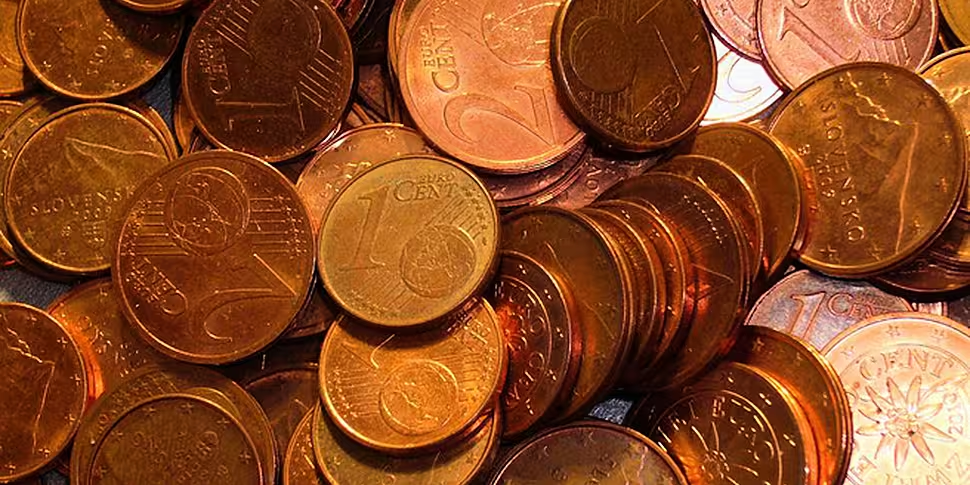The Central Bank has recommended the roll out of a voluntary scheme aimed at getting rid of 1 and 2 cent coins. The idea was trialled in Wexford and received overwhelming support - with 85% of consumers who participated there in favour of extending it nationwide.
The National Payments Plan (NPP) trial was run from September 16th to November 17th last year, with the aim of reducing the need for coins.
It would mean that retailers round all cash transactions to the nearest 5 cent at the cash register, removing the need for 1c and 2c coins in change.
NPP Programme Manager, Ronnie O'Toole, said "The results of the trial were clear. The answer from Wexford was a resounding 'yes'. When 'don't knows' are excluded, 85% of consumers and 100% of retailers surveyed believe rounding should be applied nationally".
Five EU Member States have already adopted a rounding-up policy: The Netherlands, Sweden, Finland, Denmark and Hungary. Belgium is currently in the process of adopting it.
The coins actually cost more than their face value to produce
One of the concerns consumers had before the trial was that retailers would round up the price of goods. However, a shopping exercise showed that rounding had no inflationary effect.
Mr. O'Toole added "We expected that the trial wouldn't result in price rises. Rounding only applies to total bills, not to the prices of individual goods. Quite simply, the price of almost all goods tracked over the nine weeks of the Trial remained unchanged".
The Central Bank says it mints more of these small denomination coins than any others, but they go out of circulation quickly because of stockpiling and shops constantly need fresh supplies for change.
While the direct average cost of producing these coins exceeds their face value - with a 1c coin costing approximately 1.3c to mint - there are significant other economic costs associated with the transport and storage of these coins in the economy.










